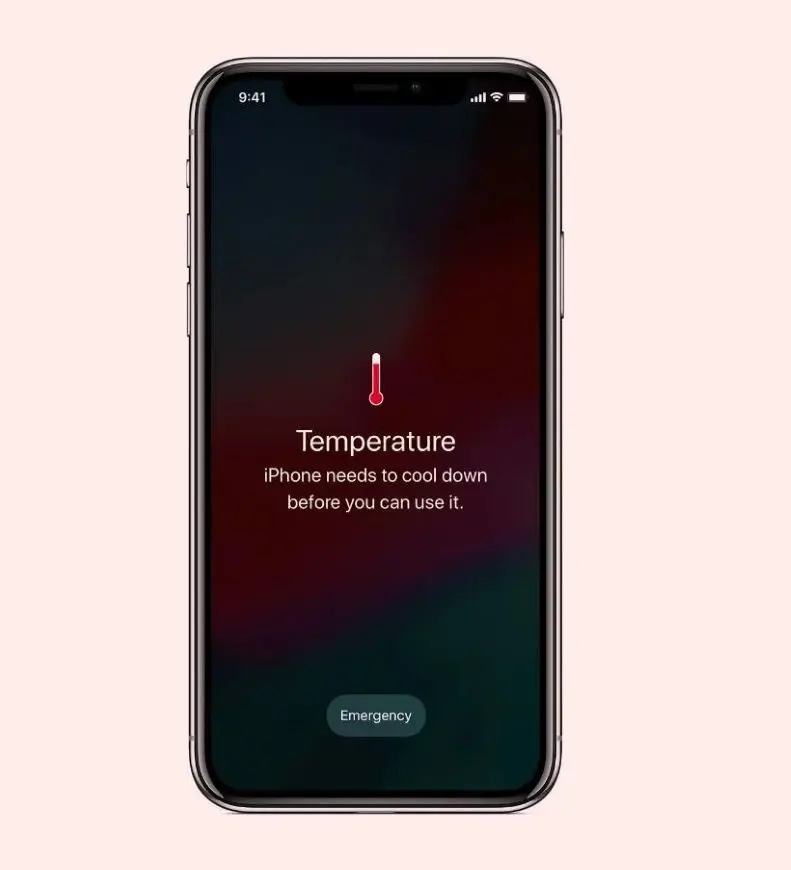20 Signs Of Stress And Anxiety And Natural Ways To Reduce It

In psychology, stress is defined as emotional strain or pressure caused by stressors like divorce, the death of close ones, or job loss. While a short amount of stress can be a beneficial and motivating factor in achieving things, prolonged stress can cause serious emotional and physical exhaustion.
Anxiety on the other hand is the state of uneasiness from the anticipated threats. Stress and anxiety in a lot of ways are similar but the key difference between them is, that stress is a response to an external trigger. In contrast, anxiety is a persistent feeling of worry that may not have a specific cause.
Even though anxiety and stress have some differences, they can show common signs or symptoms be they physical or psychological. In this article, we will be discussing these signs and their solutions. Let's take a look.
1. Restlessness

Some difficult circumstances such as a lot of work, the demise of close ones, or a breakup will make your body feel uneasy and restless, making it harder to focus on tasks or challenges. When we get stressed, our body releases hormones like cortisol and adrenaline, which create nervous energy.
This nervous energy also referred to as fight or flight energy, can feel like a mental storm, making it difficult for the body to remain calm and still.
2. Irritability And Short-Tempered

As stress or anxiety in itself feels like a big boulder on top of your head, minor inconveniences or disagreements with others can emotionally trigger anger and frustration. Even more than anxiety, highly stressed people are more prone to get angry.
An office worker who is assigned to a huge workload might burst out his anger and resentment towards his wife or children on minor issues. They are short-tempered and likely to lose their patience when things don't go well.
3. Difficulty Concentrating And Blank Mind

Brain fog often occurs during stressful situations and extreme anxiety. An individual experiencing brain fog might have difficulty thinking straight and concentrating. Forgetfulness is also a common symptom of this condition.
As the number of tasks to do increases, people can feel overwhelmed by their workload, making it difficult to focus on one thing and easy to forget details.
4. Mood Swings

Emotional instability is another common sign of prolonged stress and high anxiety. A person might be happy and calm in one instance and all of a sudden get angry and anxious. They can also be enjoying and relaxed for a few moments and then frustrated for the rest of the day.
These symptoms are often common in both stress and excessive anxiety but are more common in the latter conditions. People with obsessive traits are more prone to suffer this symptom.
5. Sense Of Loss Of Control

As the number of challenges and responsibilities rises, you may feel overwhelmed and withdrawn. These feelings can lead to a sense of loss of control over things and create other problems.
Suppose a highly anxious person who has a lot of work to complete in a short period may experience a loss of touch with reality and feel like s/he is about to lose mind, Long experiences with anxiety can even lead to serious conditions like dissociation.
6. Procrastination

Overwhelmed by the things and works that need to be done or completed, postponing tasks for later is often a common trait of a highly stressed person. Not only do stressed people find it hard to complete tasks, but they can also experience difficulties starting a new task.
For example, a student who has lengthy assignments to do can feel submerged by the work that needs to be done as a result, postpone it for later.
7. Avoidant Behaviour

Avoidance is a common trait for those suffering from anxiety. Not only may they avoid tasks or performing duties due to psychological pain, but they may also avoid social interactions as a whole as this can be anxiety-provoking and isolate them in a closed space.
Socializing is one of the crucial parts of humans. Thus, breaking off and losing connection with society may compound the anxiety and stress levels even more.
8. Nervous Habits

When facing big situations or problems, your body might often show physical symptoms like foot tapping, biting nails, or pacing around. These are usually the coping mechanisms to face extremely stressful situations.
A highly anxious individual can have these physical symptoms when going outdoors to places like hospitals, colleges, or party events. These symptoms are more common in socially isolated people or individuals with social anxiety.
9. Changes In Appetite

Not feeling hungry is a common sign of stress and worry. Some people might not want to eat because of long-term mental stress and fear, which can lead to significant weight loss. On the other hand, others might eat more as a way to deal with their feelings.
In addition, changes in appetite can lead to massive loss of weight or massive gain of weight. To add more, few people can even develop symptoms of depression due to lack of energy and constant thought.
10. Increased Sensitivity To Triggers

Highly anxious people are prone to react in crowded places or certain circumstances. In addition to that, certain smells and sounds can create high stress and anxiety due to their association with past events or memories.
Moreover, they may also be highly sensitive to statements or remarks. For example, a person might overthink or reflect on comments made about appearances by some person. This sense of heightened sensitivity can make daily activities and everyday situations feel like major challenges.
11. Clenched Jaw Or Teeth Grinding

People who have long-lasting anxiety or stress might start to clench their jaws. Even in their sleep, they might do this without realizing it. In some cases, this happens because of bad dreams.
If you grind your teeth a lot, it can cause serious dental problems, trouble sleeping, jaw pain, ear pain, and even dislocation of the jaw. Additionally, it can also destroy tooth enamel in the long term.
12. Frequent Sickness

Interestingly, persistent stress and anxiety undermine the immune system, and as a consequence, make a person vulnerable to diseases, including the flu, fever, and general illness. The reason behind this is cortisol, a stress hormone that decreases our platelet count.
When a person is in a stage of a constant battle for existence cortisol levels are released in larger quantities and this wrong element attacks the immune system of the organism which makes it frail and susceptible.
13. Panic Attacks

If a person is facing the problems of long-run anxiety problem then slowly this will lead to panic attacks. Panic attacks are brief periods of intense fear and uneasiness that are accompanied by a racing heartbeat, shortness of breath, trembling, dizziness, numbness, and fear of losing control.
These attacks are more common in those who have a long history of anxiety problems like General Anxiety Disorder (GAD), Obsessive Compulsive Disorder (OCD), PTSD, Social Anxiety, and Hypochondriasis.
14. Sweating

Even when a person is physically inactive and even if it's not hot weather, highly stressed people can have physical symptoms like excessive sweating. This is due to the body's reaction to the perceived threat which in this case is excessive psychological stress.
Just like anxious people who are constantly in a flight-or-fight state and always reflecting on their behaviors and surroundings, stressed people may react by sweating uncontrollably.
15. Racing Thoughts

Stress can cause a continuous stream of thoughts with no tails that are uncontrollable. This experience can feel similar to brain fogging where a person has scattered thoughts and has a bad memory. Storms of unwelcomed thoughts can make a person exhausted and unrest.
If you have a similar experience of facing these problems, you are likely anxious or stressed out over something. The good news is this is curable with simple exercises like meditation and jogging.
16. Digestive Problems

Patients with anxiety and stress also might experience irregular bowel movements when they are highly stressed out and afraid about something. In one study, it was found that stress negatively affects the digestive system.
This can lead to issues like stomach butterflies, nausea, changes in appetite, and bowel movements. In a rare case, high stress can also cause conditions like Irritable Bowel Syndrome (IBS).
17. Headaches

Although headaches can be the signs of a lot of problems when stressed, it is felt at specific parts of the head like the temples, back of the head, and around the forehead. These headaches can last more than 30 minutes and can recur when the stress level rises.
Accompanied by headaches, physical symptoms like rapid heartbeat, increased muscle tension, and irritation can occur. They can often feel like a tight band wrapped around your head.
18. Sleep Issues

Who doesn't love their sleep? Sleep is one of the most essential activities to regulate better physical as well as mental health. Stress and constant anxiety can directly impact the biological cycle of sleep which in consequence helps compound stress even more.
In addition, it can lead to problems like difficulty getting sleep, and frequently waking up at night. In the worst-case scenario, a person can develop seeping conditions like insomnia which might make the issue even worse.
19. Social Withdrawls

Overwhelmed by the anxiety-inducing situations and places might choose to fall back into social isolation. The main cause of the withdrawal is often caused by the fear of judgment.
This is often common in closed societies where people are more prone to face judgement by others. In addition to that, people suffering from social anxiety disorder are highly likely to remain indoors and closed off from societal activities and duties.
20. Memory Problems

This issue can be understood from a simple old example of psychology. If someone were to command you,” Don't think about the white elephant,” you do think about the white elephant. This same rule can be applied to our memory.
When you are highly stressed and fearful of forgetting something important, the mind tries to distance that particular memory from your conscious mind as far as possible when you need it the most.
Natural Ways To Reduce Stress And Anxiety
Following natural techniques to reduce anxiety and stress can be more effective alongside medical intervention. These natural methods can be effective for mild levels of stress and anxiety, but if the problem extends for a long period, only the natural way might not help. In that case, seeking professional help is recommended. Let's take a look.
1. Meditation

Meditation is a well-known method to overcome any kind of stress and psychological pain. This is not like the pseudoscientific way of homeopathy, it is strongly backed up by proper scientific research of its effectiveness.
2. Exercise
Research shows that consistent physical activity lowers the levels of stress hormones such as cortisol and adrenaline. Additionally, exercise offers significant benefits like better sleep, enhanced focus, improved mood, and higher self-esteem.
3. Journaling
When racing painful thoughts are bottled up and have no outlet, it can increase the anxiety even more. Journaling helps track thoughts and patterns. Plus, it can help improve mindfulness and emotional awareness.
4. Spending Time With Animals

Playing with pets is one of the best and happiest ways to reduce anxiety. They can provide you with emotional support if you are feeling lonely. A study notes that spending time with pets reduces stress hormone levels because spending time with them stimulates the production of hormones like oxytocin.
5. Getting Enough Sleep
Going to bed and waking up routinely at the same time improves the quality of sleep and regulates circadian rhythm. Replacing phones with books improves the production of natural melatonin.
6. Healthy Diet
Studies have found eating sugar can disable our ability to cope with anxiety. Maintaining your diet with non-sugary foods and drinks, vegetables, and lean proteins can help improve your stress levels drastically.
7. Spending Time In Nature

Taking walks in the park, the forest and even walking in the garden helps push down the cortisol level hence enhancing your mood. And as it will be recalled from previous sections, exposure to natural sunlight is discovered to lower stress and anxiety.
8. Social Support
Surrounding yourself with your loved ones is the best way to fight your anxiety. Opening up about your bottled-up emotions and thoughts with your close friend can help overcome your stress levels.
9. Limiting Caffeine And Alcohol
Caffeine and energy drinks are known to seriously worsen your anxiety. Yet, as a drink, alcohol can eliminate mental stress for a while, but sooner or later, any individual suffers from anxiety even more.
10. Reading Books

Reading books could be the best way to spend your leisure time. It will keep you away from your smartphones and help improve mental clarity and focus. Not only that, habitual reading was found to ameliorate confidence and self-esteem.
Common Causes Of Stress And Anxiety
Although genetics can play a major role, stress and anxiety can have a wide range of causes be it environment, social circle, family history, isolation, and many more. We have listed 5 of the most common reasons for stress and anxiety in recent times.
1. Work-Related Presures
High expectations from yourself, huge workloads, and disputes with co-workers can cause stress-related problems.
2. Financial Problems
People struggling with paying debt or rent and economic instability as a whole are likely to develop chronic anxiety-related problems.
3. Relationships
Major relationship problems like divorce, the death of parents, or any type of misunderstanding with close ones can generate a high amount of stress.
4. Health Problems
Due to big health problems like chronic diseases and accidents, individuals become isolated in hospitals which as a result can show signs of anxiety.
5. Major Life Changes
Major live events like divorce, the death of close ones, changing jobs, migration, and even positive changes like marriage can cause stress.
FAQs
1. Can anxiety go away on its own?
Although mild amount of anxiety problems can be treated with certain lifestyle changes, Chronic anxiety doesn't heal on its own and requires medical intervention.
2. How can I tell if my anxiety is becoming a problem?
Although anxiety is a natural response of a body when faced with threats, the constant experience of anxiety and stress might be the result of chronic anxiety illness.
3. How can I manage anxiety and stress in a short time?
When struck by sudden anxiety, you can perform deep breathing techniques or mindfulness meditation. If applicable, you can engage in physical activities and talk to someone about your feelings.
4. Is anxiety and stress hereditary?
Yes, anxiety does play a role in genetics and runs in families. However, other facets like environment and certain life events can be contributing factors in developing anxiety symptoms.






